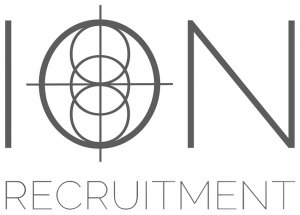Welcome to our news & information blog.
Hello and thanks for opening our blog. We will be adding useful information & experiences that we hope you find informative & come in handy.
5 ways to helping choose and get the most out of your recruitment professional.
When beginning any job search, connecting with a recruitment agency should be one of your first moves. Recruiters are always looking for great people; often have insight into employment and job market trends; and they can leverage existing relationships with clients and candidates to your benefit. They are truly an indispensable resource. With that being said, whether you are new to engaging with Recruiters or you have been working with them for years, we have a few recommendations on how to get the most out of your Recruitment company and consultant.
1. LinkedIn
You’re a rockstar: you have let the LinkedIn world know you are open to opportunities, and now you are waiting for them to come find you and your amazing skills. Recruiters have found you, and are impressed by your marketable skills. They can’t wait to talk to you about a great role they have available.
Dilemma: You never put a telephone number or email address in your LinkedIn contact details. Oh… and you haven’t checked any of your LinkedIn messages for weeks.
Resolution: Very simply, put your contact numbers and/or email address on your LinkedIn profile (and your resume while you’re at it) and check your LinkedIn messages once a day, minimum.
Note that many Recruiters are aware that people work in communal spaces. They would never want to put you in an awkward position of talking about your job search with your cubical mate listening in. Recruiters will often email or InMail you to avoid this. Getting back to them as quick as possible will get your job search moving.
2. Voicemail
You received a call back from an Agency Recruiter or HR coordinator. It’s the call you have been waiting for! You get on the phone straight away, but get voicemail. You leave a quick message and wait for a call back.
Dilemma: The voicemail was said at warp speed with hardly any details. It sounded like this “Hi this is Bob, call me on 01*1-8xfg-$%*#”.
Resolution: Slow down. Take a breath. You may have planned out exactly what you want to say when you get hold of the Recruiter, but you probably haven’t even thought about the fact that they may not pick up! So, what do you say in your voicemail message?
- Your full name or, more specifically, your name as it appears on your resume/LinkedIn profile.
- Best contact number for you. Slowly. With pauses between numbers. This way. The Recruiter can. Write it down.
- Why you are calling. Don’t assume you are the only person named John they have called. Let them know that you are returning their call about ‘the Operations Manager role at Site XYZ’; reiterate what they mentioned in their voicemail so they know exactly why you are calling.
- Provide a few good times that they can reach you. Or if email is better, let them know your email address. Slowly. Enunciate the letters so they know you spelt Frank and not Blank (F-for-Foxtrot).
- Finally say your name and number again. Slowly.
3. Interview
You have made contact with a Recruiter on a role you applied for. An interview is scheduled for you to meet each other.
Dilemma: You showed up to the interview in your gym clothes, didn’t remember who you were meeting with (even though they emailed you a confirmation), can’t remember the role you applied for, or what the company you are at even does. Also you were very vague about what you were looking for in your next role.
Resolution: Maybe you did none of the things above – they are extreme examples. But maybe you did one of them. How can you be better prepared before you meet a Recruiter?
- Dress as you would for any professional interview. Recruiters often hear “I will dress better for a real interview, this one doesn’t really count”. This is a blatant disregard for the Recruiter’s job and the time they are spending with you. Additionally, it casts doubt on whether you will, in fact, dress appropriately for their client. As for what to wear? Err on the side of caution and, to quote Barney Stinson, “Suit up!”
- When you get a call from a Recruiter on a role – grab a pen and paper to take down all the details. Ask for that person’s name and the company they are calling from. If you applied for a couple of roles they had posted, ask which one in particular they are referring to. And if you are calling the Recruiter on a role, take a moment to Google the company and find out what they do. This way you can be fully prepared when you go for the interview. You shouldn’t be wasting your time interviewing for roles or with companies you have no interest in.
- In your interview, make sure the Recruiter has a very good idea of your expertise and skills. But it is equally important to make sure they have a very clear understanding of what you are looking for in your career and your next position. If you are vague, they won’t have an idea of what roles you are even interested in. It is fine to have a couple of directions you are looking in, but “Oh, you know, I’m open to anything” doesn’t help refine your search.
- Be honest about salary and location, types of industry, specific job titles, and even management styles and culture. It’s also helpful to have an idea of some of the organizations you want to work for to create a strong picture of your ideal work environment. As you give your Recruiter this information, they will begin to assess which of their Clients may be the best match for you. The clearer the picture you paint, the more roles you will be called about that you are truly interested in.
4. The follow up
You registered with an agency. You had a really good conversation with a Recruiter around your career objective and what you are looking for in your next move. They called you about a role their client is thinking about hiring for. Nothing firm yet but they will get back to you as soon as they hear anything. Now what?
Dilemma: You have either a) been calling your Recruiter every 2 hours, every day to get an update; or b) haven’t heard anything back from your Recruiter in 2 weeks (or even longer, in some scenarios). Both situations are common, and neither is ideal.
Resolution: Situation ‘A’ makes you look and sound a bit obsessed and desperate. Recruiters understand that your situation may be dire, but you still need to think of the image you are putting across.
The image you project to a Recruiter is how they think you will behave in an interview with their client. Be the professional you are, at all times, in your dealings with your Recruiter. This is not to say you shouldn’t call, but when you do, ask when they think they will have more information and if you can follow up with them then, if you haven’t heard back. The answer will absolutely be ‘Yes’. And often the Recruiter will be impressed that you’ve taken on that responsibility.
Situation ‘B’ leaves you feeling like you have wasted your time and maybe even like the Recruiter gave you the ‘run around’. But have you done your due diligence and followed up with them?
You definitely don’t want to be left in the dark for an undefined period of time, so at the end of the interview, ask what the timeline looks like. When is the client doing interviews? When are they looking to hire? The last time the client used the agency, did they take their time or were they in a rush to move the process forward? Ask these types of questions so that you can be aware of when steps are happening. This way you can make informed follow up calls on where everything is at in the timeline. You will also have a better idea of what to expect throughout the process. Don’t be afraid to follow up.
5. Recruiters are but one tool in your tool-box
You have registered with one agency. You are now waiting for your Recruiter to call you about your dream job.
Dilemma: The agency you registered with has indeed called you about different roles, but you haven’t been interested in any of them. It has been a couple of weeks now since you last heard from your Recruiter on potential roles, and you’re worried that you will not be able to find a job.
Resolution: Don’t rely on one Agency as your only option. No agency will ever hold you back from registering somewhere else in your job search. If they do, have a conversation with them as to why, because that is not standard practise. Register with all the agencies you feel best represent your field; use discretion. Follow up with your Recruiters on a weekly basis to see if they have any new roles. Keep applying on your own to positions you find on job boards, LinkedIn, Facebook, or Newspapers.
Recruiters are but one tool in your tool-box, make use of all of them to find your next role.
Searching for a new job is hard work and can be discouraging at times. Finding the right Recruiter can take time. But once you find someone that clearly understands the value you can bring to their clients, it will increase your odds of landing your next role. Get your recruitment professional working for you!
Relocation Tips
Relocating can be tough enough, but if you add in the stress of starting a new job, it can be overwhelming. Here’s how to make the transition easier and less demanding.
MAKE A PLAN
Make a plan before you move. This is the number one thing you can do to dramatically reduce the stress associated with moving. How detailed should your plan be? Very detailed. You should take an inventory of all of your property, make a list of things you need to do and when you need to do it by, and you should have a list of important phone numbers handy for your movers, your utilities, and any other company or person helping you during the move.
It dramatically reduces your stress because all you have to do is follow the plan.
FIND A NEW HOME
Finding a new home isn’t always easy, but it’s something (oddly enough) many people do quickly – almost too quickly. In fact, most people put more time into planning a move than they do finding and researching a home.
Let’s say you want to find a home in Alberta. What should you do? You should start with local listings in the area you want to live in. Contact a local realtor. Have a home inspection done. Consult with a contractor about the costs for any repairs that need to be done. Then, make a determination as to whether it’s worth the asking price. Negotiate with the seller.
Make sure you get the home you want for the price you want. Don’t get too emotional over buying a home, especially if it’s your first walkthrough. Worst case scenario – you rent. It’s not the end of the world. Whatever you do, don’t stress about the home. Don’t buy something you’re not completely satisfied with or can’t afford.
FORWARD ALL YOUR MAIL
Don’t forget to forward all of your mail. This is a biggie. Many people just assume the post office will automatically forward mail. They won’t. You will have to forward it yourself or tell everyone about your new address and hope that nothing gets lost.
CHANGE YOUR PHONE NUMBER
If you’re moving into a new area code, make sure you transfer your phone service to the local one. If you have a cell phone as your primary number, this isn’t so important.
GET INVOLVED IN YOUR NEW LOCAL COMMUNITY
One way to make the moving process less stressful is to get involved with the local community. If you feel like part of the place where you live, you’ll develop an attachment to it. Bonding happens when there is an emotional or psychological connection. If there’s no connection, there’s no feeling of belonging.
And, what creates that feeling? Investment. You must invest in the place where you live in order to feel like it matters to you. So, get involved in your community. Make it matter to you. Sure, you’ll miss your old place, but you will appreciate the new place you’ve chosen even more.

Pages
News & Information
Jobs
- .NET Developer (SQL)
- Audio DSP Embedded Software Engineers
- Automated Software Test Engineer
- Automated Software Test Team Leader C#
- Automation Software Testers
- Biomedical Scientist / BMS / MLA pathology staff – IT career
- Biomedical Scientists / NHS BMS / MLA Pathology Lab professionals
- Business Analyst – Mortgages, Loans, IT (SQL Server)
- C / C++ Software Engineers – Linux OS
- C / C++ Software Engineers (GUI)
- C/C++ SOFTWARE ENGINEER
- C# .NET / Web Service Software Developer
- C# .NET SOFTWARE DEVELOPER
- C# .NET Software Developer – Aberdeen – £30-£60k
- C# .NET SOFTWARE DEVELOPMENT ENGINEER
- C# / Web Service Software Developers
- C++ Linux Software Engineer
- C++ Software Engineer
- Cloud Deployment Engineer
- CMS Scotland – Market Design Authority (Business Process Manager)
- Controls Engineer
- Controls Engineer – Glasgow
- Data Migration Specialist (SQL)
- Data Modelling / Algorithm Engineer (Matlab)
- Data Scientist
- Database Application Developer PostgreSQL
- Delphi Developers
- DevOps Engineer (Cloud)
- Digital Embedded Hardware Engineer
- Electrical CAD Technician (Controls)
- Electronic / Hardware Test Engineer
- Electronic Hardware Test Engineer
- Embedded Firmware Development Engineer
- Embedded Software Engineer (DSP C/C++ Codecs)
- Embedded Software Engineer C/C++
- Embedded Software Engineers
- Field IT / Network Support Engineer
- Finance Manager – Mortgages & Secured Lending
- Firmware Applications Engineer
- Firmware Design Engineer (Audio)
- Front End Developers Mid/Senior Level
- Full Stack Web Application Developer
- Full Stack Web Applications Developer – to £60k. Home / office – Edinburgh
- Full Stack Web Developer
- Graduate .NET Applications Software Developer
- Graduate Software Developer
- Graduate Software Developers
- Hardware Test Engineer – Embedded Firmware
- ICT & Cyber Security Manager
- iOS / Mobile Applications Developers – (Middle/Senior level). Objective-C and/or Java, Android
- IT Systems / Support Engineer – Windows Server 2008/2012 / Office 365
- IT Systems Administrator
- IT Systems Administrator
- Java Developer
- Java Software Developers
- Lead Software Architect
- Linux System and Applications Support Engineer
- Linux/ UNIX Networking Field Support Engineer – Offshore
- Management Information Analyst – IT, Finance, Mortgages
- Marketing Professional
- Mathematics / Science Software Engineers
- Mechanical Maintenance Engineer (Plant / Welding / Fabrication)
- Microbiology / Pathology Specialist – IT Implementation
- Mobile Application Software Developers
- NHS MICROBIOLOGY / PATHOLOGY LAB STAFF – PARTIAL CROSS TRAIN INTO IT SUPPORT ANALYSTS
- NHS Microbiology Specialists
- NHS Pathology Lab staff (BMS / MLA) – IT career
- OBJECT ORIENTED SOFTWARE ENGINEERS
- On / Offshore Field Support Engineers
- Pathology IT Product Manager – NHS / BMS 7 OR 8 / Biomedical scientist
- PCB Layout / Design Engineer
- Post Graduate Embedded Firmware Development Engineer
- Procurement Specialist
- Product Owners – Software Development or SaaS industry
- Project Resource Manager
- Python Developer
- Python Developer
- Python Software Engineer
- Quality Manager – IT / SOFTWARE
- Radiology / Radiographic or Pathology lab professionals
- Realtime Embedded Software / Firmware Engineer – Edinburgh
- Realtime Embedded Software Engineers
- Requirements Engineer / Business Analyst (Software/IT)
- Sales Support Administrator
- Sales Support Administrator
- Scientific Software Development Engineers (PhD/ MSc)
- Seismic Acquisition Analysts and Specialists
- Senior .NET Developer (Umbraco / Apps)
- Senior Automated Software Tester – UFT / QTP
- Senior Automation Software Tester
- Senior C/C++ Software Engineer – Edinburgh
- SENIOR C#, ASP.NET DEVELOPER
- Senior Embedded Software Engineer
- Senior Firmware Developer
- Senior Java Developer
- Senior Product Manager
- Senior Project Manager – Digital / Creative / Software
- Senior Project Manager (NHS / Public Sector)
- Senior Projects / Contracts Engineer
- Senior Software Engineer / Technical Lead C++ Linux
- Senior Software Engineer C++
- Senior Software Engineers – C/C++, Linux, QT/GTK
- Senior Strategic iOS Mobile Apps Developer – Objective-C , Java , Android
- Software / Database Developer
- Software / Database Developers
- Software Business Analyst
- Software Developer
- Software Developer – OO, DATABASES, .NET
- Software Developer ( Progress )
- Software Development Director
- Software Development Engineers – Science
- Software Development Engineers – Scientific (Maths / Physics Process etc)
- Software Project Manager
- Software Release Project Manager – IT
- Software Sales & Business Development Manager (Marine Logistics)
- Software Sales Director – NHS Trusts/Healthcare. South West England
- Software Systems Integration / Implementation Engineer
- Software Test Engineer
- Software Test Engineer
- Software Test Engineer – Embedded Software
- Software Test Engineer (web applications)
- Software Test Manager
- Software Tester
- Software Tester
- SQL Database Dashboard Developer (Tableau)
- SQL Server Applications Support
- SQL Server DBA
- System and Applications Support Engineer (AWS and Linux)
- Systems Administrator / Engineer ( Cloud )
- Systems Software Developer
- Technical Author / Writer
- Technical Writer / Author
- User Interface Application Developer (AngularJS)
- VB .NET Software Developers
- VB.NET / C# Developer / Team Leader , Surrey £50-60k + excellent benefits
- Web Applications Developer (ASP.NET, VB.NET Webforms, MS SQL)
- Web Applications Developer (Visual Studio, SQL)
- Web Applications Engineer


